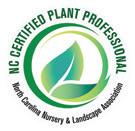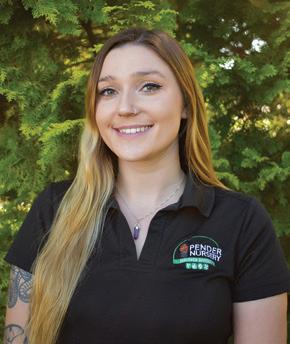Nursery Landscapenotes
Publication of the North Carolina Nursery & Landscape Association, Inc.


Publication of the North Carolina Nursery & Landscape Association, Inc.

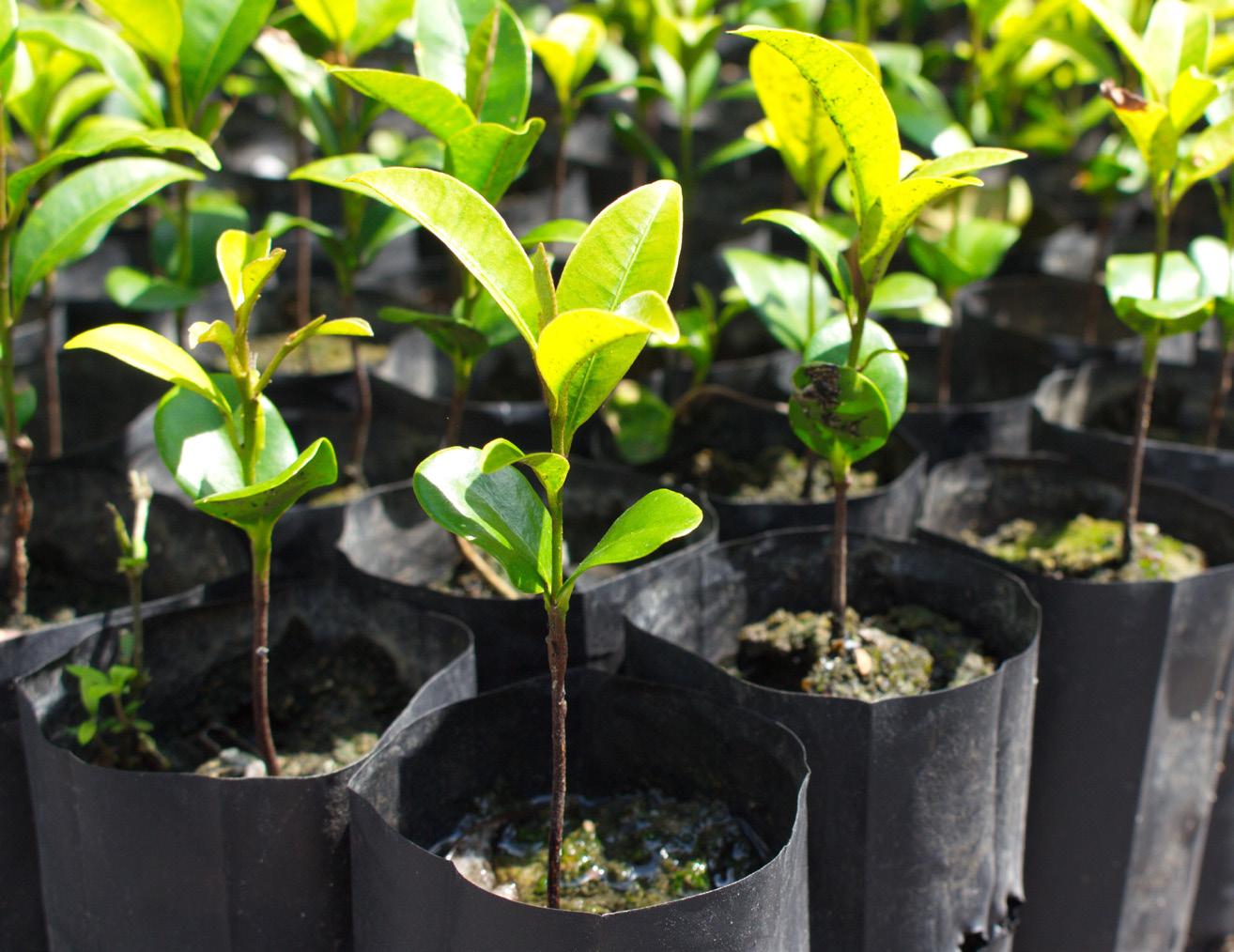
Partner with Triangle for the best choices from the best companies in the world of nursery & landscape care. With nine distribution points strategically located to serve the Southeast, good company is always just around the corner.

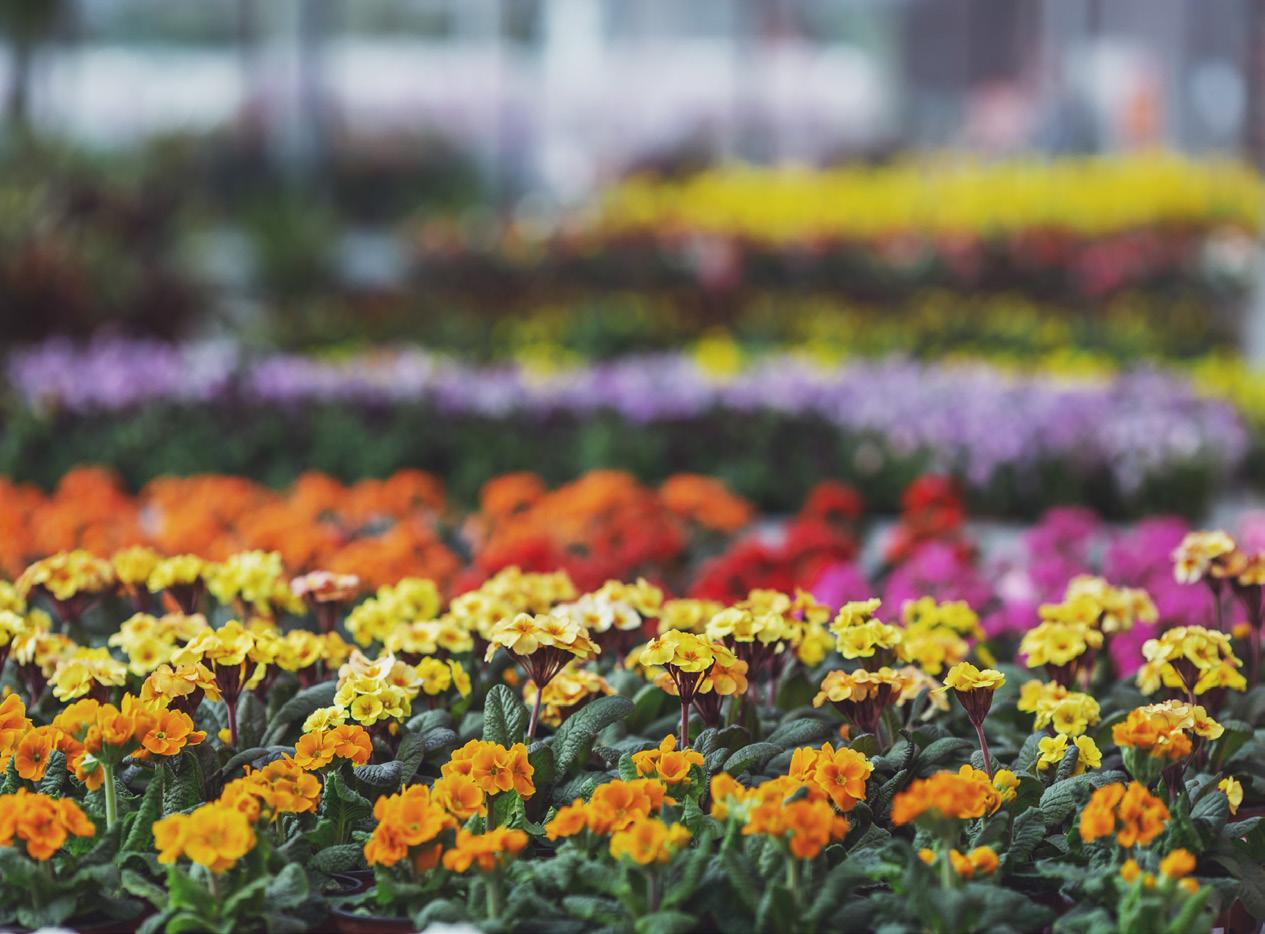
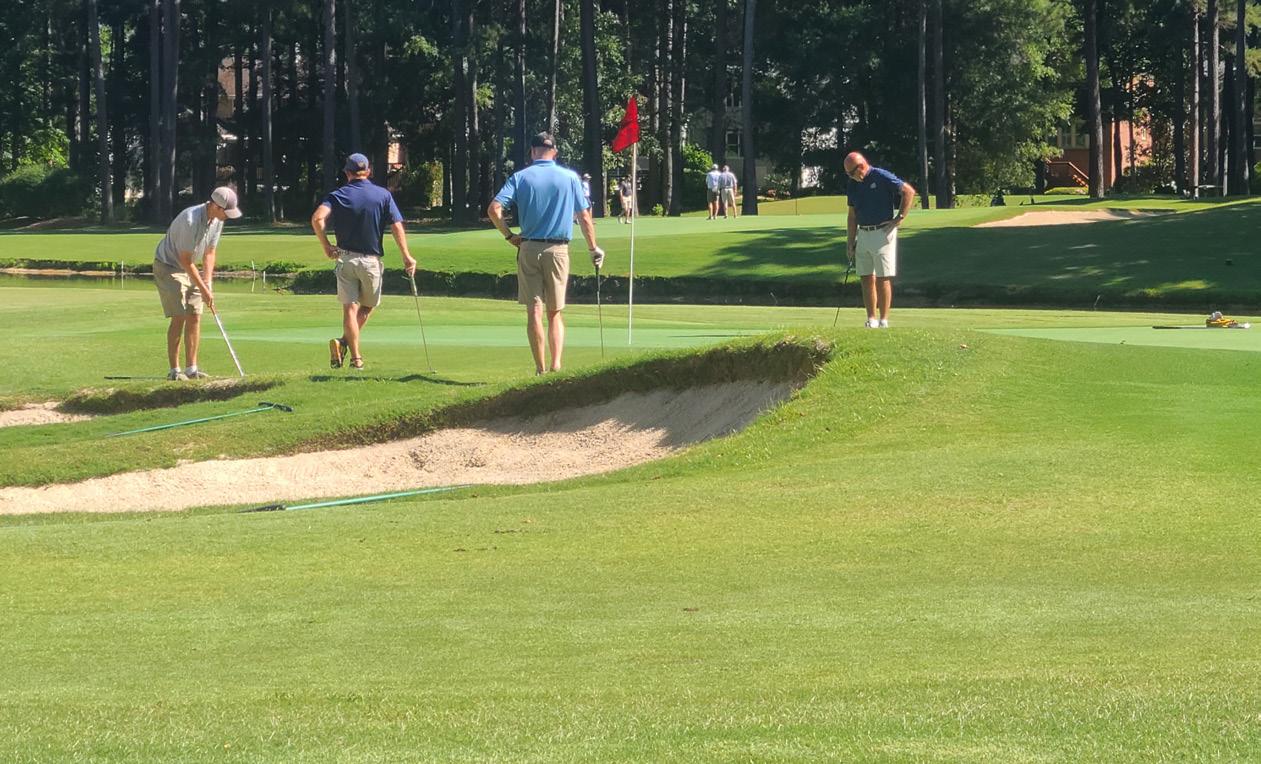
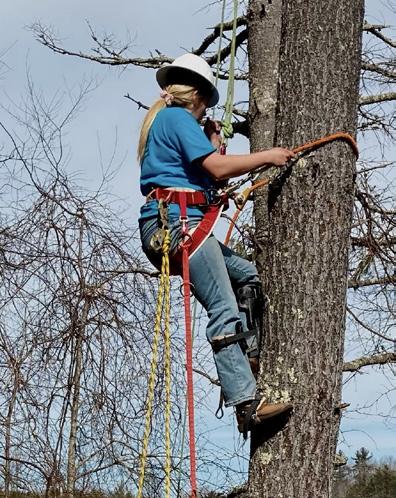

3
3
Index 36
President’s Message 5
Executive Vice President’s Message 6 NCNLA
Member Spotlight: SiteOne 8
Certified Plant Professional Update & Renewals 10
Legislative Update 12
2024 Summer Educational Summit Highlights 14
2024 Cagle Golf Tournament 16
Green & Growin’ 25 Sponsorships 18
Student Spotlight: Sierra Fox, Wilkes Community College 20
Collegiate Corner 22
Five SEO Strategies for Landscape Companies 24
Take a Closer Look at
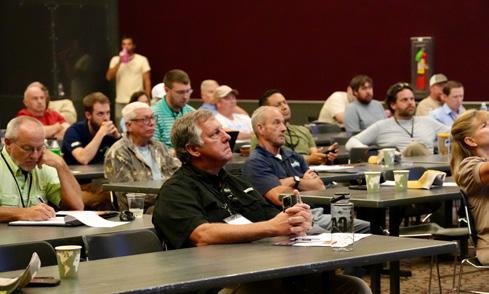



Published by
North Carolina Nursery & Landscape Association, Inc.
968 Trinity Road, Raleigh, NC 27607
NCNLA Staff
Richard Lawhun Executive Vice President
Katie Oskey Director of Events & Education
Kathryn Stansbury Director of Business Development
Wendi Doak Director of Marketing & Communications
Rayna Bailey Office Manager
Nursery & Landscape Notes is published quarterly by the North Carolina Nursery & Landscape Association, Inc. (NCNLA), covering news, research, education and business in the nursery and landscape industries. The publication is distributed to approximately 825 horticulture producers, landscape professionals and industry suppliers.
Nursery & Landscape Notes is provided as a member service.
2024 NCNLA Board of Directors
Officers
Ariel Montañez
President Pender Nursery Garner, NC
Dana Massey Vice President, Secretary/Treasurer Plantworks Nursery Rougemont, NC
Tim Johnson, II Past President
Tim Johnson Landscaping Statesville, NC
Directors
Hunter Casey Casey Nursery Inc. Goldsboro, NC
Michael Gossett Gossett’s Landscape Nursery Inc. High Point, NC
Todd Lange Gregory Poole Equipment Company Raleigh, NC
Jonathan Schwarz Pender Pines Garden Center Hampstead, NC
Ed Snyder Greenleaf Services Linville, NC
Jason Tebben Savatree/ Arborscapes Pineville, NC
Educational Advisors
Jason Davis University of Mount Olive Mount Olive, NC Caleb Fox Alamance Community College Graham, NC
Jodi Songer NC State University Raleigh, NC
Advertising
For advertising inquiries and publication schedule, please contact Wendi Doak at wdoak@ncnla.com or 919-819-9119, ext. 1002.
The inclusion of products or brand names in this publication is not an endorsement by the North Carolina Nursery & Landscape Association.
Mission: To provide essential value to our members through education, marketing and advocacy.
Vision: To promote and protect the interests of North Carolina’s green industry.
Connect with NCNLA facebook.com/NCNurseryandLandscapeAssociation twitter.com/tweet_ncnla instagram.com/ncnla ncnla.com | BuyNCPlants.com | GreenandGrowin.com
Tax Deductible Dues Contributions or gifts to NCNLA are not tax deductible as charitable contributions. However, they may be tax deductible as ordinary business expenses. A portion of your dues is not deductible as an ordinary business expense to the extent that NCNLA engages in lobbying. The estimated non-deductible portion of your dues assessment is 20%.
CPP Exam
September 17, 2024 Charlotte, NC www.ncnla.com/CPP
CPP Exam
September 23, 2024 Graham, NC www.ncnla.com/CPP
Vascular Streak Dieback Webinar
September 26, 2024 www.ncnla.com
CPP Exam
October 8, 2024 Asheville, NC www.ncnla.com/CPP
Green & Growin’ 25
January 13-17, 2025 Greensboro, NC www.greenandgrowin.com
NCNLA Member Breakfast & Annual Meeting
January 16, 2025 Green & Growin’ 25 Greensboro, NC
Women in the Green Industry Gathering
January 17, 2025 Green & Growin’ 25 Greensboro, NC
ELEVATE
November 3-6, 2024 Charlotte, NC www.landscapeprofessionals.org/ elevate
WELCOME, NEW NCNLA MEMBERS!
HortSource LLC Lincolnton, GA
Dascoli Designs Apex, NC
Carolina Landmark Maysville, NC
Profile Products Conover, NC
Arbor Landscape Group Pinehurst, NC

Featured on the cover is a vibrant, healthy dogwood—a species highly susceptible to Vascular Streak Dieback (VSD). This disease has also impacted over 25 other woody ornamentals. Discover more about the challenges VSD poses to the green industry on page 34.
JULY 1 - OCTOBER 31, 2024


SiteOne.com/EOP-seed
I hope this letter finds everyone in good health and prospering. Hopefully, you have had an opportunity to get away from the office and enjoy summer. My wife and I headed to Denver for vacation, and wow — what a beautiful state. While we were there, we did a lot of hiking and drove up to Pike’s Peak. Being at the peak helped me realize how small our concerns, worries and problems are and how important it is to spend time with friends, family and loved ones. Work hard, but play harder!
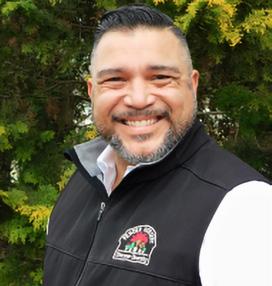
Ariel Montañez
With that said, the work must go on, and NCNLA’s board and staff remain dedicated to providing education, legislative action and valuable membership benefits to our industry. We kicked off the season with the Summer Educational Summit at NC State’s McKimmon Center, featuring a top-notch lineup of speakers who covered a wide range of topics, including identifying your “hell yes” and “hell no” employees, understanding your financial statements, building a retaining wall, pest prevention, creative plant pairings, bulb planting, and erosion strategies. Kudos to the NCNLA staff for organizing such a fantastic educational summit!
Pender
Nursery Garner, NC

We are also excited to announce a new direction for our summer 2025 education program! The event will be rebranded as the Carolina Nursery Summit, with a primary focus on topics of interest to growers. This is your opportunity to help shape the agenda—if there is a specific topic you would like to see addressed, please email education@ncnla.com.
I also want to catch everyone up on the four primary objectives I outlined at the start of the year:
Objective 1: Continue growing and strengthening our legislative efforts to build a stronger voice and presence in our state and federal governing bodies.
NCNLA’s Legislative Committee, under the leadership of Gary Whitehurst of Worthington Farms, has been working hard (and I mean hard) to bring awareness to the issues we face as an industry. As a result of NCNLA’s Legislative Day in Raleigh in May, the committee was invited to make a presentation to the North Carolina House Agriculture Committee. They have also been active on the national level, fighting to freeze the H2A rate and improve the H2B program. I was given the opportunity to sit on a panel, headed by Bob Etheridge, state executive director of the USDA Farm Service Agency, to propose recommendations to
improve the accuracy of the information gathered by the USDA Ag Survey for calculating the H2A rate. The recommendations will be presented for approval to Tom Vilsack, U.S. Secretary of Agriculture, which will hopefully bring some relief to those of us who use H2A labor.
Objective 2: Recognize, remember and memorialize our history to grow our future.
Thank you to everyone who has taken the time to submit photos and stories that share the rich history of our association. If you haven’t yet sent in your photos/stories, I encourage you to do so soon! We must acknowledge past contributions by our members and preserve that information for our future members. By remembering and honoring our past, we will continue to grow the future of our association and our industry. You may forward your photos/stories to Kathryn Stansbury at kstansbury@ncnla.com.
Objective 3: Enhance membership engagement within the association.
NCNLA staff kicked off their 2024 member visits with trips to Nazo Landscaping in Durham, Fairview Garden Center in Raleigh, the University of Mount Olive, and SiteOne in Apex. These visits provide opportunities for you to meet NCNLA staff while they learn about your operation. I am thankful that we were able to restart this program, which had been on hiatus for a couple of years due to COVID-19. The visits go a long way toward increasing member engagement. So, get ready — Rick, Rayna, Wendi, Katie and Kathryn may be coming to see you soon!
Objective 4: Reach out to landscape architects and municipalities to address plant specifications in our industry. We continue to address plant specifications within the industry. Preliminary dialog has been established through the native plants discussion that took place at the JC Raulston Arboretum in February. Thanks to the relationship our Executive Vice President, Rick Lawhun, has with AmericanHort, we are looking to utilize their American Nursery Stock Standards to develop state-specific guidelines and best practices for North Carolina. Ultimately, we will seek opportunities to discuss these guidelines/ best practices with municipalities and landscape architects in order to align expectations with grower production capabilities. Our friends from the Johnston County Nursery Association held their annual JoCoPlants Show on August 21 at the Kerr Scott Building at the State Fairgrounds. This was a wonderful opportunity for members, customers and staff to interact. I hope you were able to take a break from the office and come see us! Overall, I am very pleased with the progress we’ve made to date. I want to thank you, our incredible members, for your unwavering support as we continue to enhance NCNLA’s value proposition. The best is yet to come!
Has it really been more than six months since Green & Growin’ 24? My, how time flies when you are busier than an ant at a picnic. Everyone at the NCNLA office has been nose to the grindstone working to provide opportunities for our members to gain knowledge, advocate for the industry, network with colleagues and have a little fun. Here is just a sampling of our past and future events:

Richard “Rick” Lawhun NCNLA Executive Vice President

On Wednesday, May 1, NCNLA held its second annual Legislative Day in Raleigh. NCNLA members and staff, along with our lobbyists from Michael Best Strategies, visited with several state legislators to discuss issues of importance to the nursery and landscape industry. Our group also toured the North Carolina House and Senate Chambers, where lawmakers gather to conduct official business. The highlight of the day was an invitation from Rep. Jimmy Dixon (Duplin and Wayne Counties) for the NCNLA Legislative Committee to make a presentation at a future meeting of the North Carolina House Agriculture Committee.
On Thursday, June 20, NCNLA hosted the 2024 Summer Educational Summit at the McKimmon Center on the North Carolina State University campus. The program attracted more than 75 attendees and covered a variety of topics, including financial planning, employee onboarding, pest management, segmental retaining wall construction, perennial and woody plant combinations, erosion and sediment control, and planting bulbs to produce a “wow” factor in the landscape. Everyone enjoyed the educational sessions, as well as the opportunities to interact with our exhibiting sponsors.
Next year’s summit will be retooled to focus on a different segment of NCNLA membership — growers. The inaugural Carolina Nursery Summit will be held at the McKimmon Center on Tuesday, June 3, 2025, focusing on topics of interest to growers, including pest management, labor,
native plants, trucking and more. Make plans to join us next June for a “tree-mendously” good time!
On Friday, June 21, Kevin and Robby Cagle hosted the 2024 Robert Cagle Memorial Golf Tournament at Lochmere Golf Club in Clayton, NC. Participation in this year’s event was at its highest level ever. Proceeds, which totaled $4,000 this year, benefit the NCNLA Scholarship Fund. Thanks to the generosity of the Cagle family and the golfers/sponsors who support the event, NCNLA was able to grant scholarships to five horticulture students pursuing careers in the industry.
Next year’s event is moving from Friday to Monday, June 23, 2025, due to a change in policy at Lochmere Golf Club. Regardless of the day of the week, the event will be full of fun and camaraderie, with some friendly competition — all while benefiting the NCNLA Scholarship Fund. Make plans to join us next June for a swinging good time!
On Thursday, August 15, Caterpillar hosted NCNLA Day at its facility in Clayton, NC. The program began with a safety briefing and included four stations addressing drainage, irrigation, grading and financing options/dealer services. Attendees were also treated to a networking lunch with members of the NCNLA Board of Directors. The $10 registration fee benefited the NCNLA Scholarship Fund.
Our most popular event, Green & Growin’ 25, returns to Greensboro, NC, January 13-17, 2025. Mark your calendars and plan to join us at the largest green industry trade show in the Southeast. Additional information regarding the education program, marketplace and social events will be available soon at greenandgrowin.com.
As always, stay well and stay passionate about the industry you love!

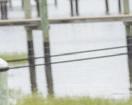







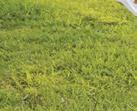
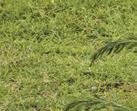
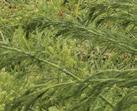


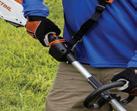

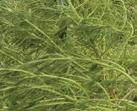









919.619.8270

david.sluder@stihl.us









































































919.698.3854 will.parker@stihl.us







































NCNLA MEMBER SPOTLIGHT »

SiteOne Landscape Supply
Central and Eastern North Carolina
Area Sales Manager Erik Hagen
Member of NCNLA Since 2013
Favorite offerings from NCNLA Education programs, Green & Growin’
How did you get into the business?
I first started in the industry working for a paving contractor in Durham, NC, and then worked as a project manager for a Durham-based contractor.
What is a typical day like for you and your staff?
I spend most of my days meeting with and serving our landscape contractors. This includes jobsite meetings, material delivery, providing materials quotes, etc.
What has been the most rewarding part of your career?
Seeing our growth as an industry and watching contractors grow their businesses. Nothing is more rewarding than helping our customers and partners succeed.
What is your company best known for?
Serving customers at a high level through our many locations across North Carolina and the United States.
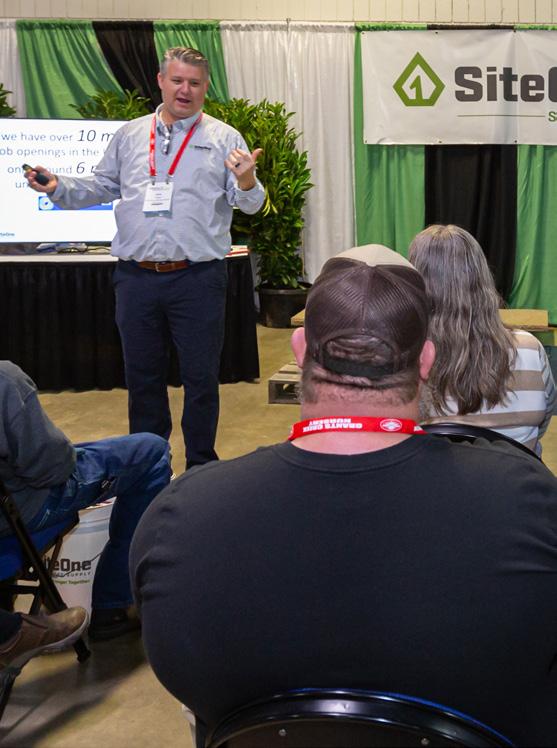


We like to be “large and local,” which means we leverage our national size to help our customers but are still involved locally in communities through charity and industry events.

What issues are you concerned about as a company in the green industry?
Continuing to find labor, both internally and for our customers.
What have you gained from your involvement in NCNLA?
Forming great relationships with vendor partners, other distributors and contractors. We have also been part of a lot of educational events in North Carolina, most of which have come via our relationship with NCNLA. As someone who is passionate about education, our partnership with NCNLA has been a critical part of that journey.
What advice do you have for someone interested in or just starting in the industry?
Learn as much as you can. Embrace every opportunity to better yourself and your company. Lean into and on those around you to improve your business, and partner with those who can help you succeed. Get to know the industry around you, and get involved.



NCNLA would like to thank Jodi Songer Driedger of North Carolina State University and Donna Riddle of Wilkes Community College for hosting recent Certified Plant Professional (CPP) exams on April 30 and May 7, 2024. Their dedication — not only as educators, but also as NCNLA CPP Committee members — is greatly appreciated.
Congratulations to the following individuals who earned their CPP accreditations:
Grayson Black, NC State University
Rachel Cates, New Garden Landscaping & Nursery Inc.
Shannon Holden, Wilkes Community College
William David Hunt, Carteret Community College
Cassandra Kelm, North Carolina Department of Agriculture and Consumer Services
Fred Kemp, SiteOne Landscape Supply
Sara Lawlis, Fearrington Village
Kellee Payne, North Carolina Cooperative Extension
Margaret Peters, Weedman
Ashelyn Ramsey, Carteret Community College
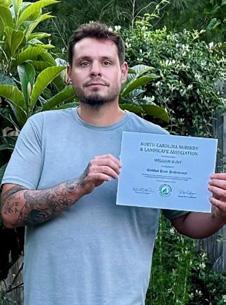

“It’s hard to believe I’m a Certified Plant Professional! This journey has been nothing short of amazing, pushing me to my limits both mentally and physically. Through the challenges, I have gained invaluable rewards and scars that I wear with immense pride. However, the true treasure I have acquired is the wealth of knowledge I am now able to share with others.” —William Hunt, Carteret Community College
“The Certified Plant Professional course provided me with personal growth and exponential knowledge of green industry topics and plant identification, which have helped me better assist my clients as a consumer and commercial horticulture agent.” —Kellee Payne, NC Cooperative Extension
NCNLA would also like to recognize the following professionals who recently renewed their CPP certifications (as of June 25, 2024):
Marie Elliott, BB Barns Inc.
Sergio Lopez, City of Charlotte
Phillip Morgan, Colonial Landscapes
Elizabeth Rudd-Myers, Bright Leaf Landscaping
Jonathan Smith, Bright Leaf Landscaping
NCNLA is seeking host sites for the 2025 North Carolina CPP exam, which includes a plant identification section and a written exam. NCNLA will handle registration and scoring, and provide a staff member to proctor the exam, including all necessary supplies. Whether you’re interested in making it convenient for your employees to take the exam or in getting more exposure to green industry professionals, NCNLA would like to talk to you about hosting an exam. For consideration, complete the Exam Host Application on the following page and submit it to education@ncnla.com.
• September 17, 2024 — Charlotte
• September 23, 2024 — Graham
• October 8, 2024 — Asheville
For more information about the CPP program, to renew your CPP certification or to register for an upcoming exam, visit ncnla.com or email education@ncnla.com.

NCNLA is currently seeking exam host sites for the year 2025 to facilitate the administration of the NC Certified Plant Professional Exam. This exam includes two testing components: a plant identification section and a written exam. NCNLA will oversee exam registration and scoring, and an association staff member will be present onsite to proctor the exam, bringing along all necessary testing supplies.
Please submit this completed application to education@ncnla.com for thorough review and approval by September 1, 2024. Exam dates will be finalized with each applicant no later than October 31, 2024. The chosen host sites will be tasked with ensuring optimal testing conditions. This includes providing:
• Adequate seating arrangements (the number of exam takers will be provided to the host site contact no later than one week prior to the exam date)
• Suitable lighting
• Temperature control
• A five-hour time frame to accommodate exam check-in and testing
Your cooperation in maintaining these conditions is crucial to the smooth execution of the exam. Thank you for considering hosting the NC Certified Plant Professional Exam.
Host Venue Details
Name of Venue:
Seating Capacity:
Address:
City, State, Zip:
Contact Person:
Phone Number:
Email:
Preferred Exam Dates (provide three options): ➀
I, , as the representative of , acknowledge that we have read and understood the requirements for hosting the NC Certified Plant Professional Exam. We agree to provide the necessary facilities and support to conduct the exam smoothly. We understand that the exam date will be offered publicly to any interested exam taker.
Signature:
Date:
We hope everyone is coping as well as possible with the unpredictable weather the last few months and finding time to spend with friends and family to recharge ahead of what we all hope will be a busy fall. Outreach, relationships and bridge building continue to be high priorities for me as NCNLA Legislative Committee chair. In addition to fostering close ties with legislators, we also want to have open lines of communication with organizations whose interests overlap with ours, for a couple of major reasons. First, such relationships naturally help us amplify NCNLA’s voice when it comes to issues on which we are aligned; second, they create opportunities for discussion on issues where we do not necessarily align. As an association we should not be an island unto ourselves, instead diligently and continually engaging with others as we advocate for the industry.
With that in mind, over the past few months I have spent time reaching out to such organizations to introduce myself and explain what NCNLA is all about. A summary of my outreach efforts follows:
• The League of Municipalities is the main advocacy organization for municipalities at the state legislature. Any state-level legislation that affects a municipality’s ability to make independent decisions is of great interest to this group. Pleased to have a renewed contact with NCNLA, this group is very receptive to working with us, as it has in the past. Notably, the organization continually advocates for more infrastructure funding for cities, which of course is good for our industry.
• The North Carolina chapter of the American Planning Association is an organization composed of those who write city ordinances in our state — and for NCNLA, educating cities on how to incorporate better municipal planting specifications into their ordinances continues to be a priority. After contacting this group, NCNLA was invited to present an educational workshop on planting specifications at the 2024 North Carolina Planning

Conference being held October 16-18 in Greenville. Mark Metzler of Landscape Design of Goldsboro will be taking lead on this effort.
• The North Carolina Urban Forest Council (NCUFC) recently brought on Kim Strazisar as its new executive director. This name should be familiar to many of you, since Kim worked with NCNLA earlier in her career, and most recently with the JoCo group. The NCUFC has always played a significant role in developing planting ordinances, engaging in invasive species discussions, voicing storm water concerns and advocating for urban planting initiatives.
• The North Carolina Invasive Plant Council (NCIPC), established in the late 1990s with input from NCNLA, has seats reserved for various government regulatory entities, conservation groups, and nursery and landscape representatives. Given the recent invasive species legislation passed in Virginia and Maryland, which lacked industry input, it is important that we engage with this group, since they would be involved with any such legislative efforts in North Carolina. Dana Massey of Plantworks Nursery, Stephen Gillis of Hoffman Nursery and I recently met with representatives from NCIPC to help open a dialogue. The discussion was productive, and some areas of common ground were identified for us to build on in the future.
During our Legislative Day in Raleigh in May, the NCNLA Legislative Committee received an invitation from Rep. Jimmy Dixon to speak about the nursery industry this fall in front of the North Carolina House Agriculture Committee. The nursery industry is often a misunderstood segment of agriculture, due to differences in crop diversity, production times and the way we sell our products compared to traditional commodity crops. This will be a great opportunity to explain what we do and the struggles we face to those who make decisions affecting agriculture at the state level. David Hoffman of
Gary Whitehurst, Chair
Worthington Farms Greenville, NC
David Hoffman
Hoffman Nursery Rougemont, NC
Tim Johnson
Tim Johnson Landscaping Statesville, NC
Ariel Montañez
Pender Nursery Garner, NC
Nate Negrin
SouthernEEZ Landscaping Charlotte, NC
James Powers
Beauty Lawn Inc. and Lawn Scenarios Cary, NC
Ed Snyder
Greenleaf Services Linville, NC
Mark Yelanich
Metrolina Greenhouses Huntersville, NC
Mark Metzler
Jericho Farms Pikeville, NC
Mitch Smith
Smith’s Nursery
Benson, NC
Dylan Gragg
North 40 Nursery
Morganton, NC
Dana Massey
Plantworks Nursery
Rougemont, NC
Ashley Thomas North Carolina Farm Bureau
Raleigh, NC
Anna Scott Marsh, Lobbyist
Michael Best Strategies Raleigh, NC
Lane Hickman
Michael Best Strategies Raleigh, NC
Kathryn Stansbury, Staff Liaison NCNLA
Rick Lawhun, Ad Hoc Member NCNLA
Hoffman Nursery, Hunter Casey of Casey Nursery and Mark Metzler of Jericho Farms/Landscape Design of Goldsboro have all volunteered to speak, with support from myself and Ariel Montañez of Pender Nursery. Anna Scott Marsh and Lane Hickman from our lobbying firm, Michael Best Strategies, have been instrumental in organizing this opportunity and in developing the associated visual presentation.
On the national front, H2A and H2B reform continues to be a high priority. Linda Andrews, the national legislative director with the North Carolina Farm Bureau Federation, organized a visit to Worthington Farms for the staff of Sen. Thom Tillis, with the goal of familiarizing them with the unique labor needs of nurseries. Sen. Tillis has been a longtime ally working to protect and improve these programs, which are so important to our businesses.
As always, I am appreciative of the opportunity to be able to serve and give back to the industry. If you have any questions or concerns, or would like to become more engaged in advocating for the industry, feel free to reach out to me.
Gary Whitehurst
NCNLA Legislative Committee Chair

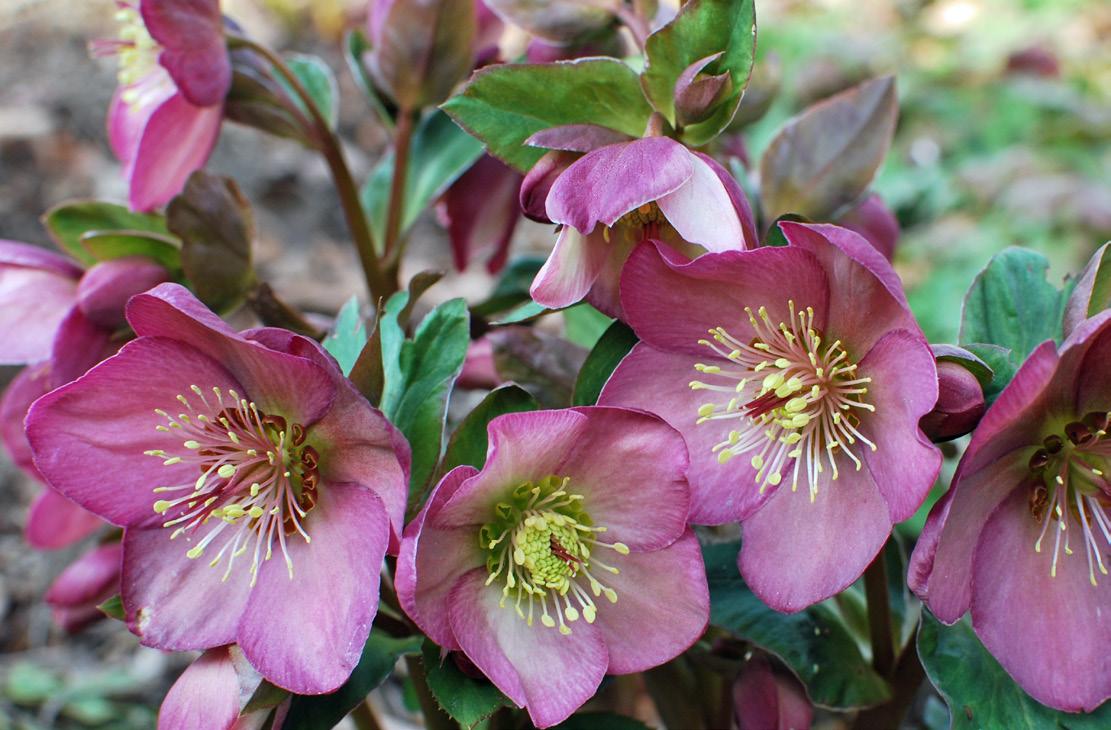



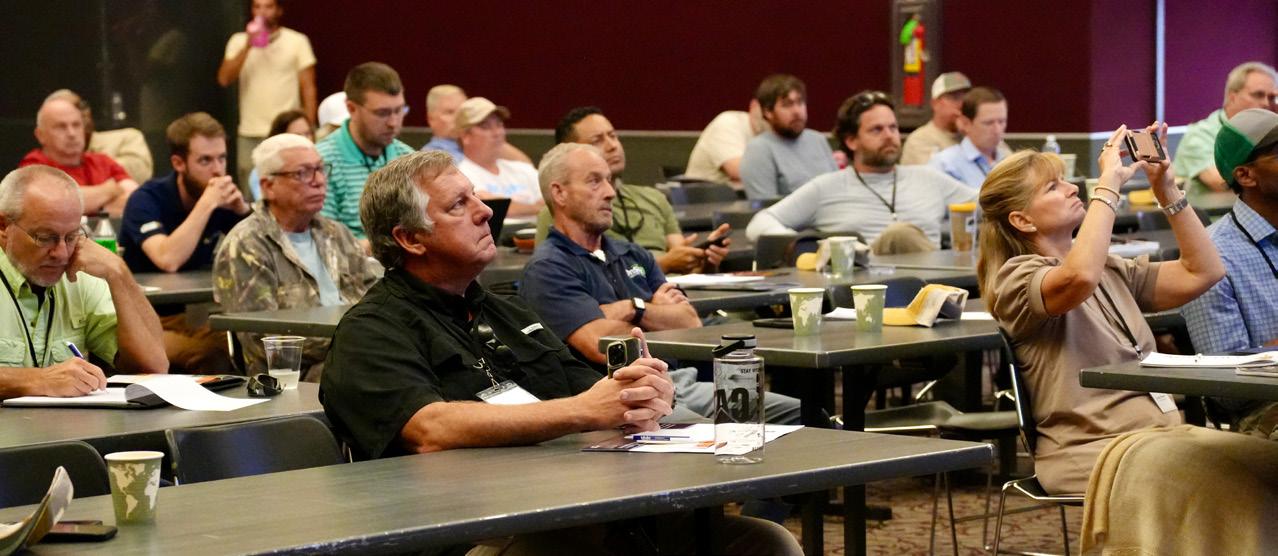
On Thursday, June 20, 2024, the NCNLA’s Summer Educational Summit was a hub of activity, drawing more than 75 green industry professionals who were eager to enhance their expertise. Emceed by Ariel Montañez, president of the NCNLA Board of Directors, the event featured seven dynamic educational sessions. These sessions focused on topics essential to North Carolina landscape contractors, providing attendees with the opportunity to earn continuing education credits, broaden their professional knowledge, and network with sponsors and peers. It was a day of learning, growth and making valuable connections in the vibrant green industry community.
The day commenced with an engaging session titled “Going Beyond Team Performance Evaluations: Helping Employees Win the First 90 Days,” presented by Jack Jostes from Ramblin Jackson. Jack’s expert guidance on recruiting, retaining and leading employees during their critical initial period provided attendees

with actionable leadership tips and real-world case studies from top landscape companies.
Joy Goforth from the North Carolina Department of Agriculture & Consumer Services then captivated the audience with “Our Responsibility in Preventing Plant Pest Invasions.” Joy highlighted the potential dangers of importing plants from other states and emphasized our collective responsibility in protecting local ecosystems from invasive pests.

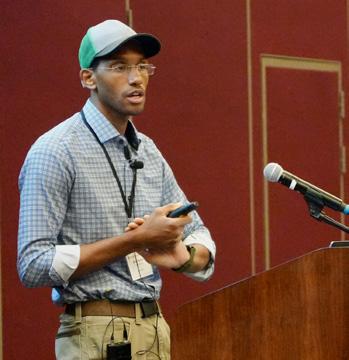
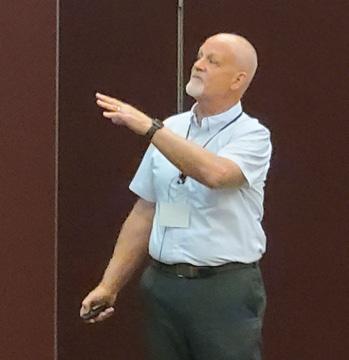
Edward Morrow, also known as “Edward the Arborist,” then took the stage with “The Financial Playbook for Green Industry Professionals.” Edward’s session revealed tips and secrets to financial success in the green industry, teaching participants how to effectively read and optimize financial data for improved service delivery.
The day continued with Brad Stowe from Chandler Concrete, who delivered “Constructing Segmental Retaining Walls, Step-by-Step.” Brad’s detailed walkthrough of the retaining wall construction process, from foundation to finishing touches, focused on best practices and common pitfalls to avoid.

Bryce Lane’s session, “Mixing it Up: Inspiring Perennial & Woody Combinations,” sparked creativity with his innovative ideas for combining perennials and woody plants to enhance landscape beds. Bryce’s passion for plants left attendees inspired and eager to experiment with their own combinations.
Brad Flack from StormwaterONE followed with “Erosion & Sediment Control Strategies for Landscapes.” This session provided practical methods for managing erosion and sediment in landscaping and construction projects, offering attendees real-world applications for various scenarios.
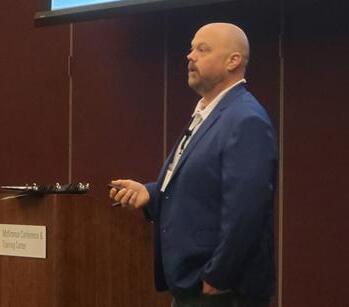
The day concluded with Jack deVroomen from Marlboro Bulb Company, who presented “Planting Bulbs Is Easy for Landscapers.” Jack

Thank you to the 2024 event sponsors who helped make the summit a success!







simplified the process of bulb planting, demonstrating how to incorporate bulbs into landscapes for maximum visual impact.
We extend our heartfelt thanks to all who participated and contributed to making the 2024 Summer Educational Summit a memorable event!


The 2024 Robert Cagle Memorial Golf Tournament, held on Friday, June 21, at the beautiful Lochmere Golf Club in Cary, NC, was a swinging success! This year’s event saw a record-breaking turnout, with 65 players and 20 sponsors coming together for a day of fun, sun and healthy competition. Proceeds from this much-anticipated annual tournament fund the Robert Cagle Memorial Scholarship, which supports the continuing education of promising horticultural and landscape students. NCNLA members Kevin and Robby Cagle dedicated countless hours to organizing this event in honor of their father, Robert Cagle, who was committed to industry education and an avid golfer. We extend our heartfelt participating companies and generous sponsors for their overwhelming support. Your participation has added a touch of magic to this event, ensuring it remains a cherished tradition for years to come. Additionally, your contributions make a significant impact on the lives of aspiring horticultural and landscape professionals.

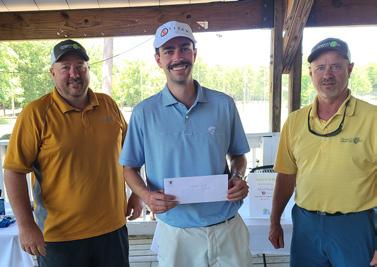
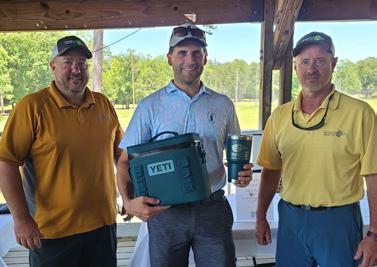




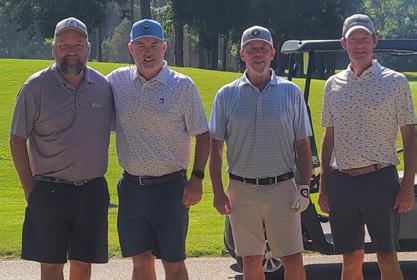




Position your brand at the forefront of the green industry’s most influential gathering in the Southeast - Green & Growin’! This premier event draws over 5,000 growers, retailers, landscapers, and industry professionals each year. As a sponsor, your brand will be prominently featured at our Education Conference, offering valuable CEU opportunities, and our Marketplace Tradeshow, a hub for networking and business connections. Don’t miss this chance to showcase your company to a captive audience eager to engage with leading industry names. Elevate your brand’s visibility and impact at Green & Growin’ 25!
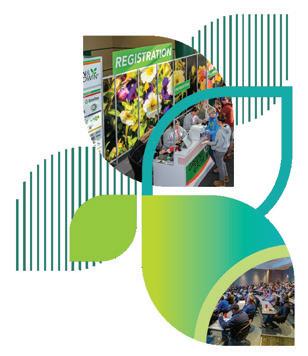
Our program provides your company with opportunities to increase your exposure through high- visibility items, show amenities and networking events.
5,000+ ATTENDEES
MARKETPLACE VENDORS

n Bronze $275
Benefits outlined on previous page.
n Silver $550
Benefits outlined on previous page plus one of the following:
● Ice Company logo on signage at Marketplace ice machine.
● Marketplace South Lounge Company logo on signage.
● Women in the Green Industry Meeting Company logo on signage.
● CPP Breakfast Company logo on signage.
● NCNLA Annual Meeting (Reserved for Annual Sponsors only) Company logo on signage.
n Gold $1,250
Benefits outlined on previous page plus one of the following:
● Morning Coffee & Afternoon Snack Break (Education) Company logo on signage.
● Morning Coffee & Afternoon Snack Break (Marketplace) Company logo on signage.
● Marketplace Lunch (Thursday & Friday) Company logo on signage.
● Cornhole Competition (limit 4) Company logo on signage at President’s Reception.
● Student Volunteer Break Room Company logo on signage at Education and Marketplace.
● Speaker Green Room Company logo on signage.
n Platinum $3,500
Benefits outlined on previous page plus one exclusive benefit:
● Marketplace Tote Bags Company branded bags for Marketplace attendees.
● Event Lanyards Company branded lanyards for event attendees.
● Event Pens
Company branded amenity for Education attendees.
● Education Notepads Company branded amenity for Education attendees.
● Marketplace Show Map Company logo on the show floor make and plant material displayed at entrance of Marketplace.
● Event Beverage Cups Logo on cups at Education and Marketplace.
● Education Audiovisual Technology Company logo on signage at Education.
● Event Wifi Company logo on signage at Education and Marketplace.
● President’s Reception Dessert Bar Company logo on signage at the President’s Reception.
● Student Day at the Marketplace Free admission for student attendees. Company logo on student-appropriate gift.
n Ruby $4,950
Benefits outlined on previous page plus one exclusive benefit:
● Education Keynote Lunch (Tuesday & Wednesday) Company logo on signage and tabletops. Keynote speaker introduction.
● President’s Reception (Thursday Evening) Company logo on event signage. 100 company branded drink tickets for distribution and redemption at the President’s Reception.
● Event Volunteer Tees Company logo on volunteer T-shirts.
● Marketplace Demonstration Area (2 available) Company provided demonstrations, logo on signage and promotion at Marketplace.
● Education Clipboards Company logo on Education Clipboards.
● Event Showbook
Company ad on back cover of 3,000 Showbooks distributed during Education and Marketplace.
● Host a Happy Hour Company hosts a Happy Hour on Wednesday at a Sheraton bar. Company logo on signage and 100 company branded beer tickets for distribution.
Also Available: Create Your Own Sponsorship (Platinum and Ruby levels only) Contact Wendi Doak at wdoak@ncnla.com to discuss opportunities.
Nursery & Landscape Notes is introducing you to the next generation of green industry professionals by featuring current and recent college students with plans to pursue careers in the field.
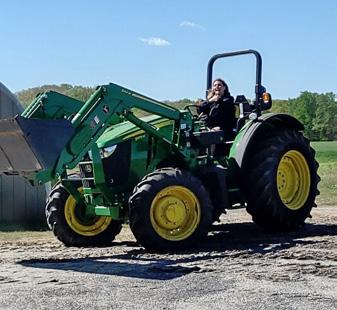
Student Profile
Name: Sierra Fox
Hometown: Hiddenite, NC
College: Wilkes Community College
Graduation date: May 2021
Major/area of study: Associate of Science degree in horticulture technology
Horticulture-related places you have worked/interned:
• Lead greenhouse operator, H.O.P.E. of Winston-Salem
• Arborist/landscaper, Isaacs Tree and Landscaping Company
• Park attendant, Rocky Face Mountain Recreational Area
• Intern, U.S. Army Corps of Engineers
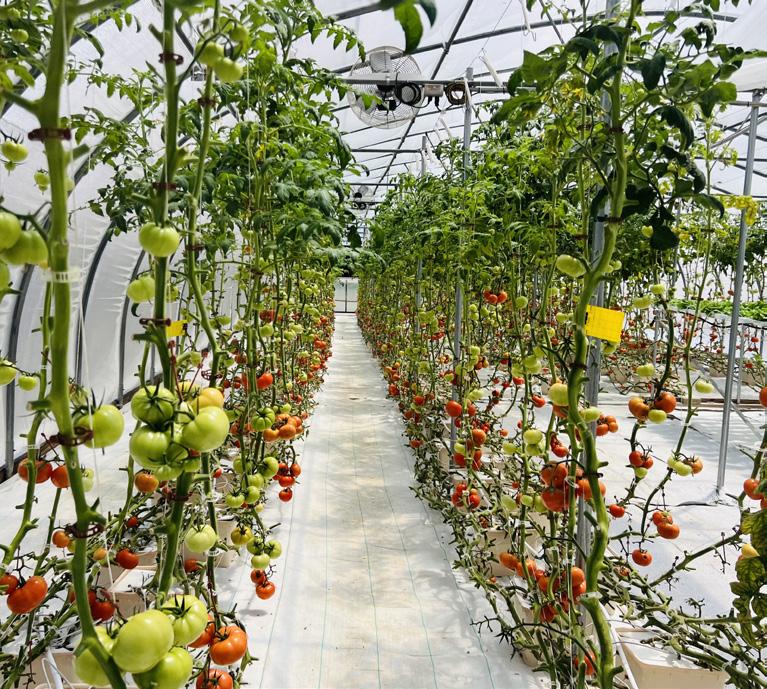
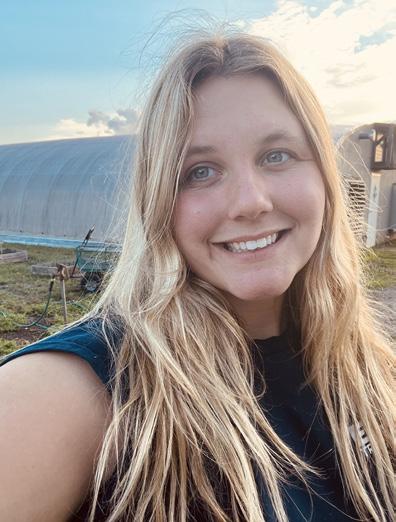
How did you discover horticulture? I discovered horticulture through Alexander Central High School’s FFA program, as well as being around farming most of my life. My high school FFA advisors, Tyler Mitchell and J.D. Sink, got me involved in the greenhouses and FFA competitions — I competed in the Floriculture and Horticulture Identification categories, along with Dairy Judging and Forestry. I have been around and on farms my entire life, and I live and breathe horticulture! My passion led me to get an associate’s degree in horticulture at Wilkes Community College, and since then I have been involved in the industry.

What were your most valuable experiences, either in school or from other exposure to the industry, and why?
Going to college gave me an educational boost and hands-on experience working on farms and in forestry, and as a result I have gained extensive knowledge and know-how in hydroponic farming, greenhouse operations and arboriculture. I’m currently serving as lead greenhouse operator at the Yadkinville Farm for H.O.P.E. of Winston-Salem, a nonprofit that works to address food insecurity among children in the local community. Working and continuing to learn in the growing agriculture industry has been such a blessing.
What were your favorite college classes, and why?
My favorites were most definitely Plant Science I and Plant Science II, which were by far the most interesting classes I’ve taken. As part of the class we made plant-identification notebooks and filled them with hundreds
of live plant samples from around the college. I’m a sucker for plant identification, and that exercise helped me a lot. I also really enjoyed attending the Green & Growin’ shows and preparing for NCNLA competitions.
What are your plans after graduation?
After graduating in 2021, I now work for H.O.P.E. of Winston-Salem, helping to distribute thousands of pounds of homegrown produce every weekend to children dealing with food insecurity.
What advice would you give to a student interested in the field?
Some of the best advice I could give is: Get ’er done! Go find a horticulturerelated job and get your feet in the door BEFORE you graduate. I have had several horticulture-related jobs, and without them I wouldn’t be where I am today!
What is your favorite plant, and why?
My favorite plant is the white pine tree — it grows tall and beautiful. I love alpine forests.
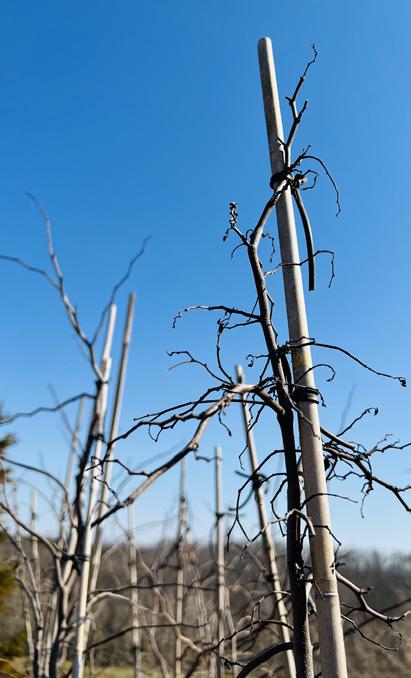

Thursday, September 26th • 10 AM-1 PM
us for an in-depth exploration of the emerging nursery problem of Vascular Streak Dieback (VSD). This session features experts who will present an introduction to VSD, share current research updates, and discuss the results of a multi-state VSD survey. Enhance your knowledge and stay ahead in nursery management.






Growing up in the rural South before the internet, cable/satellite television and video games, much of our entertainment and interests were self-generated. These adventures often involved bikes, mud and a lot of imagination. Occasionally, community gatherings and events were hosted to highlight a particular season. In the fall, there were two events that almost everyone looked forward to: the Fall Harvest Days — which consisted of a BBQ plate super sale, an auction, and a bazaar sale of baked goods and donated items — and the revival held at church. The revival, which involved food, singing and even more food, featured excellent vocal performances and the insightful and moving sermons of one or more pastors, in an effort to bring back former church attendees and wayward souls, and to inspire the congregation to stay on the “straight and narrow.” I remember revival as a transformative experience that truly rejuvenated the spirit of the church congregation.
Early in my teaching career in the late 1990s, I remember the excitement associated with the green industries. At that time, in addition to a focus on providing the goods and services needed in our state, there was a flourishing sense of enthusiasm for certifications, credentials and programs to help grow and enhance the profession. Over time, however, some of that spirit has waned, and our “flock” has strayed a bit. We need a revival!
In North Carolina, career planning and exploration begin in the 5th grade (NC DPI, 2024). Within agriculture, students can select from among the animal, equine, natural resources, plants, agricultural production and structural/power systems pathways. Many school systems are even looking at ways to align high school coursework
in each pathway with coursework in collegiate programs. Unfortunately, in light of the fact that student and parent decisions in the 5th grade can have a big impact on students’ future choices, the green industry isn’t adequately represented or perceived as favorably as other career tracks that lead to, for instance, vet school or business. Too often, our field is seen from the outside as being low-skill and low-wage, and not requiring advanced skills, certifications, experience or postsecondary training/ education — and those myths present a major obstacle to attracting new talent to our industry. Of course, internally within our field we recognize the skill and experience required to be landscapers, grow unfathomable varieties of plants and install hardscape products, but that message has largely failed to reach the broader public. To counteract and dispel that myth, we must do a better job of communicating the opportunities available in the green industry and more effectively spark students’ interest in pursuing futures in the field.
So, how do we begin this revival? Following are two examples of programs aimed at boosting and sustaining student enthusiasm.
In many of my previous articles, I have shared the need to connect with youth and stoke the fires of interest in their coursework. One key way to do so is to encourage students to participate in the North Carolina

By Jason Davis, Assistant Dean, University of Mount Olive
High School Landscape Competition. In this collaborative effort by the University of Mount Olive; North Carolina State University; and Alamance, Sandhills and Wilkes Community Colleges, high school and collegiate teams engage in training and competitions in areas such as irrigation, small engines, landscape installation, plant identification, tree climbing, machinery operation and paver installation. After receiving training from industry professionals, students get the chance to showcase their skills. Thanks to generous support from sponsors like CAT, Bland Landscaping, Farm Credit and Tim Johnson Landscaping, schools are not charged for hotels, registration fees or meals associated with the competition. To learn more about the North Carolina High School Landscape Competition, get involved, or register students for the 2025 event, contact Jason Davis at rdavis@umo.edu.
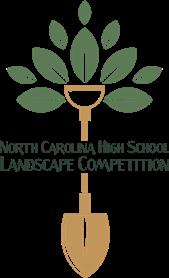
In the late 1990s, the Certified Landscape Technician program was a huge driver of the excitement in our industry. With that in mind, NCNLA and a steering committee of agriculture teachers in North Carolina have been working for more than a year to develop and receive approval for a Future Plant Professional (FPP) credential for high school students enrolled in Horticulture II — Landscaping to test their mastery of subject matter and plant identification.
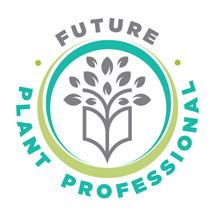
If approved, the FPP credential may become available to students in fall 2025, and is a key component of the plant professional certification “family,” with the renowned Certified Plant Professional (CPP) serving as the gold standard. To find out more about the FPP program, visit ncnla.com/FPP.
So, it’s time to get excited again! It’s time to promote what we provide
for our communities in terms of beauty, value and economic enhancement. It’s also time to share the benefits of green industry careers (such as helping the environment, making a difference and being active) that resonate with young people. While I am certainly not the “pastor” needed for this revival, I believe that collectively, we can all make a difference in exposing youth to
the unique benefits and opportunities offered by careers our profession. Can I get an amen?
Works Cited
Career Development Coordination. NC DPI. n.d.). https://www.dpi.nc.gov/ districts-schools/classroom-resources/ career-and-technical-education/ career-planning-and-placement
By Jodi Songer Driedger, Director of Undergraduate Programs North Carolina State University Department of Horticultural Science
Many who have graduated from North Carolina State University (NCSU) during the past 20 years or so will fondly remember their interactions with Dr. Helen Kraus. Helen (as she prefers students, colleagues and others to call her) has acted as the heart of the NCSU Horticultural Science undergraduate program since 2015, when she took over for Bryce Lane. During her tenure, her work as an instructor and advisor has helped hundreds of students cross the graduation stage and embark on careers in the green industry. She was also a stakeholder in nursery production research and water gardens, which benefited NCNLA members, during that time.


One weekend, Helen and Greg happened to visit the Pi Alpha Xi plant sale at NCSU, where she learned of an opportunity to become a visiting lecturer. This job acted as a springboard, enabling her to work her way up to a position as an associate professor and eventually as director of undergraduate programs — a position she held for many years. Helen primarily taught nursery production courses to students in the Agricultural Institute and the four-year program.
When asked about her fondest memories from her time with the NCSU Horticultural Science program, she warmly remembers the students. Another proud achievement of note is the “Hands-On Nursery” she established to help her students gain real-life industry experience working in a functional nursery. Students serve as the foundation of the operation, which is located just behind the JC Raulston Arboretum. Plants cultivated in the nursery are either sold to outside parties or used project material by students in other courses.
Helen began her horticultural career working for her parents’ nursery, Pine Knot Farms, in Clarksville, VA. She then entered Mary Washington College to study marine biology but found herself a little less than enthusiastic about dissecting organisms. After meeting with an undergraduate coordinator at NCSU, she realized she had found a new home — one that would allow her to continue to work at the family nursery while pursuing her studies.
After completing her undergraduate degree, she began working toward a master’s degree and then a doctoral degree in horticulture at NCSU. Helen then went to work at Texas Tech University for three years, where she met her husband, Greg. The couple eventually moved back to North Carolina, where Greg attended seminary at Duke University and Helen continued her career as an Extension agent.
Helen also took a personal interest in helping students navigate their education and career choices, working to create a robust internship program that enabled students to work directly with industry professionals. This internship program continues to thrive and provide benefits to the green industry. To learn more about the program and become an internship host, industry professionals are encouraged to reach out to Jodi Songer Driedger (jssonger@ ncsu.edu), the current director of undergraduate programs for the NCSU Department of Horticultural Science.
Helen’s contributions to NCSU Horticultural Science, its students and the nursery industry as a whole cannot truly be measured. If you were fortunate enough to benefit from Helen’s guidance, there is little doubt that she made a contribution to your life and your livelihood.
As a landscape company owner, you know the importance of cultivating a beautiful, functional outdoor space for your clients. But how do you get clients to find you in the first place? The answer lies in effective search engine optimization (SEO). Following are five actionable SEO strategies that can help your landscaping business get found online and attract more “Hell Yes Customers.”
1. Optimize Your Website for Local Search
Local SEO is crucial for service-based businesses like landscaping. When potential customers search for landscaping services, they usually include their location in the search query, such as “landscaping services in [city].” Here’s how you can optimize your website for local search:
Make sure your website includes individual pages for each service area you cover. For example, if you operate in Raleigh, Garner, and Auburn, EACH of these locations should have a dedicated page. This means having a landscape design page for Raleigh AND a landscape design page for Garner AND a landscape design page for Clayton, and so on — likely more pages than you have now. This specificity helps Google understand the areas you serve, improving your chances of appearing in local search results.
Incorporate local keywords naturally throughout your website, including in your service pages, blog posts and metadata. For instance, use phrases like “landscape
design in Morrisville, NC” or “lawn maintenance services in Cary, NC” to target specific geographic locations.
Your Google Business Profile is vital for local SEO. Make sure it’s fully optimized with accurate information, including your business name, address, phone number and business hours. Encourage satisfied clients to leave positive reviews on your Google Business Profile, as reviews significantly impact your local search rankings.
3. Focus on Building High-Quality
Backlinks, which are inbound links from other websites to your website, signal to search engines that your site is credible and authoritative. Here’s how to build high-quality backlinks for your landscaping business:
Submit your business to local and industry-specific directories. Websites like Yelp, Houzz and Angi are great places to start. To avoid confusion, ensure that your business information is consistent across all listings.
Collaborate with Local Businesses and Regional Organizations
Form partnerships with local businesses and organizations to gain backlinks. Participating in community events or sponsoring local activities that mention your website — including NCNLA events — can often lead to mentions and links that boost your SEO. For

By Jack Jostes, CEO, Ramblin Jackson
example, do you sponsor your kid’s baseball team? If so, see if they have a website and would be willing to add your logo and a backlink.
Testimonials on the websites of companies with which you have existing business relationships are low-hanging fruit. Where are you spending money? Do they have a website? Would you write them a testimonial? For example, if you buy material from a local tree farm or nursery, ask if they can feature a testimonial from you on their website that includes a link back to your business.
Online reviews are not only crucial for building trust with potential customers but also play a significant role in your SEO rankings. Here’s how to effectively leverage reviews:
Don’t be shy about asking your happy clients to leave reviews. After completing a project, send a follow-up email thanking them for their business and gently request a review. Make it easy by providing a direct link to your Google Business Profile or other review platforms.
Engage with your reviewers by responding to their feedback, whether it’s positive or negative. Thank positive reviewers for their kind words, and immediately and professionally address
any concerns raised in negative reviews. This shows potential customers that you value feedback and are committed to providing excellent service.
5. Repurpose Online Reviews as Testimonials on Your Website
Feature glowing testimonials prominently on your website. This not only builds trust but also enhances your website’s user experience. Potential customers are more likely to contact you when they see proof of your high-quality work in the words of satisfied clients.
Use positive reviews and testimonials in your marketing materials, such as brochures, social media posts and email newsletters. This reinforces your reputation and encourages potential clients to choose your business over your competitors.
Conclusion
By optimizing your website for local search, building highquality backlinks and leveraging online reviews, you can significantly improve the SEO of your landscaping business website. These strategies will help you attract more Hell Yes Customers who are eager to beautify their outdoor spaces with your expert services. Implement these SEO tips today and watch your online visibility and customer base grow.



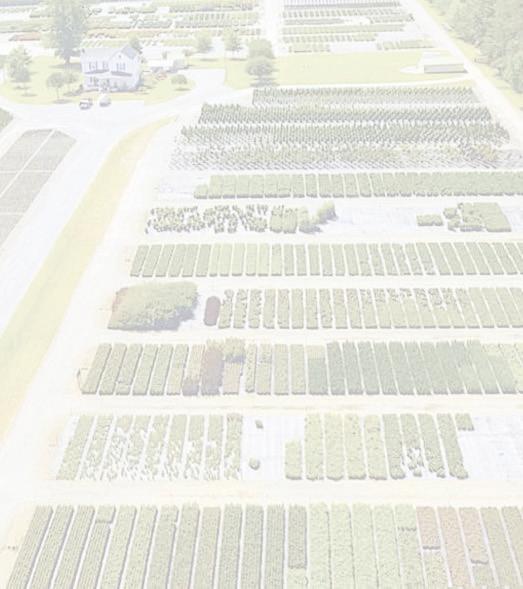
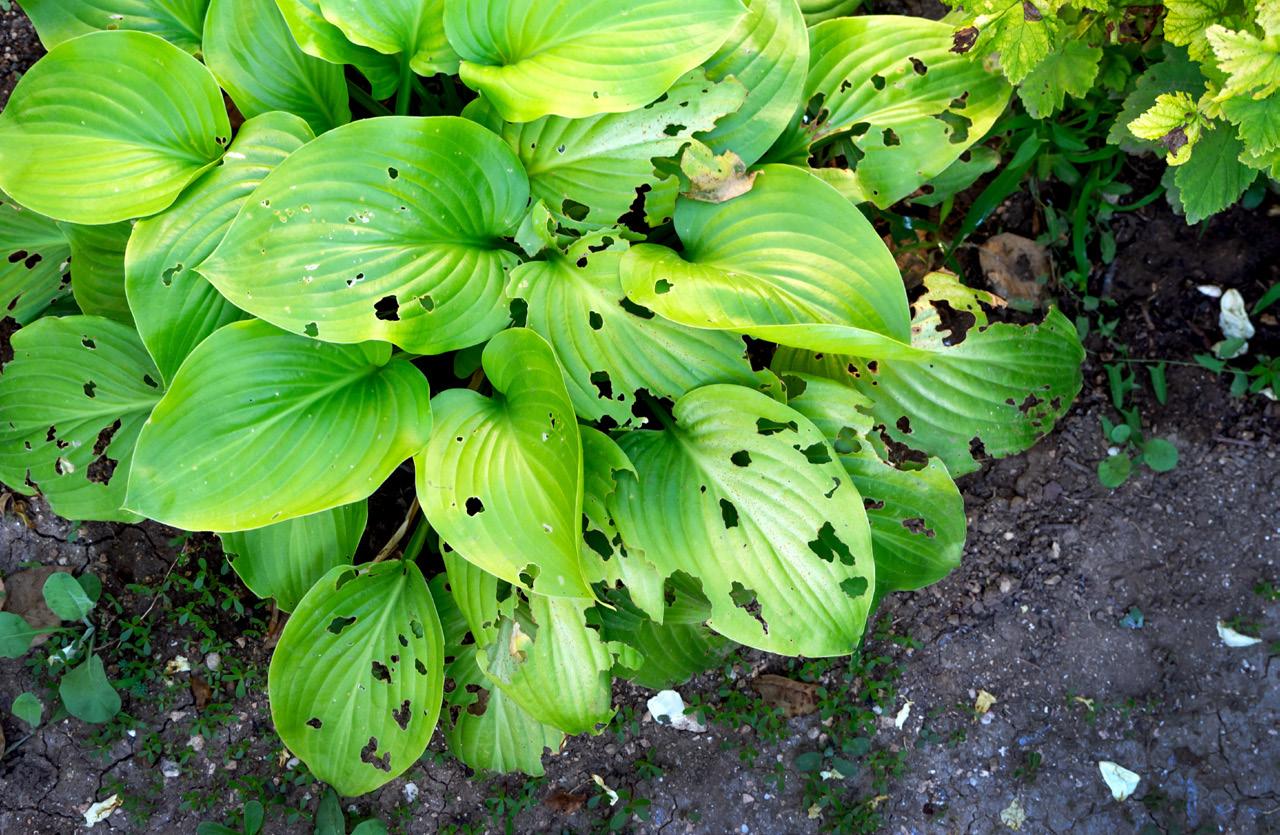
Joy A. Goforth, Plant Pest Administrator, NCDA&CS – Plant Industry Division
Although the spread of invasive pests through the interstate and international movement of plant material has long been a concern, incidents of new pest introductions — often thorough less straightforward means — continue to take place. For example, it is believed that spotted lanternfly arrived in the United States as camouflaged egg masses on landscape stone from China in 2012, since then quickly spreading to 15 states, including North Carolina. The Asian longhorned beetle is reported to have entered the U.S. in 2016 through a New York port in wooden packing material, and the pest is now plaguing maple trees in Charleston, SC. Additionally, infestations of the highly destructive spongy

(gypsy) moth frequently pop up due to the movement of untreated firewood and other carriers.
Early detection and rapid response are critical when managing new pest introductions to the state. Although nursery staff and landscapers have keen eyes for pests found on plants, the multifaceted nature of the green industry provides survey opportunities far beyond the obvious pathways of invasive pest movement. And while the North Carolina Department of Agriculture and Consumer Services (NCDA&CS) – Plant Industry Division implements effective statewide inspection and survey efforts for the most pressing, known pest risks, factors such as population growth and an increase in online
direct-to-home shipments have created countless avenues for new pest introduction. Green industry suppliers, along with professionals who regularly visit residential and commercial landscapes, have unique opportunities to look for signs of potential new pests. Plant pest indicators that would warrant deeper investigation include dieback or discoloration on plants that are typically hardy, the presence of an unusual insect, cankers or holes in the trunk or stems, visible sooty mold or frass, defoliation, and unexplained wilting.
Plant pests can be transported on pallets and packing material, straw and pine needles, hardscape materials, pruning equipment, clothing, trailers, outdoor machinery, vehicles, untreated firewood, and practically any item that is made from natural materials or stored outdoors. Additionally, plant diseases, noxious weeds, and invasive snails and worms can be moved in plant material and on landscape products.
For the benefit of the green industry, nursery and landscape professionals should train staff and implement
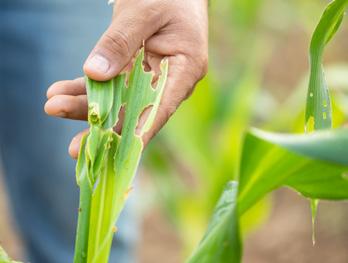
protocols to prevent the spread of invasive pests. New plant shipments should be inspected thoroughly upon arrival, kept separate and (when possible) quarantined for 30 days. Plants shipped from other regions of the country have the greatest risk of introducing new, regulated invasive pests to nurseries.
For example, the West Coast has Brown Garden Snail and Sudden Oak Death (Phytophthora ramorum) and the Northeast has Box Tree Moth and Spongy (Gypsy) Moth all of which are could easily be introduced to North Carolina on plant shipments from those regions.
To help prevent new pest introductions, landscape professionals should buy plant material only from licensed nurseries and inspect all plants carefully prior to installation. Unfortunately,

many of our most aggressive noxious weeds have been found for sale as pond or landscape plants. To help identify such species, a list of prohibited noxious weeds is available on the Plant Industry Division website at ncagr.gov/ plant-industry-noxious-weeds-list.
Concerning landscape plant diseases are also on the rise. In the past few years alone, North Carolina has seen new isolated landscape pest finds of downy mildew on hellebores, smut on trillium and a potential new-to-science disease on osmanthus. Regular sanitation of pruning equipment is critical to help prevent the spread of disease. Even plants that appear healthy may be a vector for plant diseases, and fungal spores can easily be carried on gloves and clothing.
Should you see something suspicious, you can submit pictures to the NCDA&CS – Plant industry Division at badbug@ncagr.gov or online to the North Carolina State University Plant Disease and Insect Clinic (pdic.ces.ncsu. edu). Good photos and an exact location will be needed for identification and follow-up surveys.
If you have the will to take on a tough project, we have the way to make it look easy. Look to the Bobcat® compact tractor lineup and conquer whatever comes your way.
https://curtis-lane.com/showrooms/B
Dennis Carey, Curator, JC Raulston Arboretum at NC State University
Mark Weathington, Director, JC Raulston Arboretum at NC State University
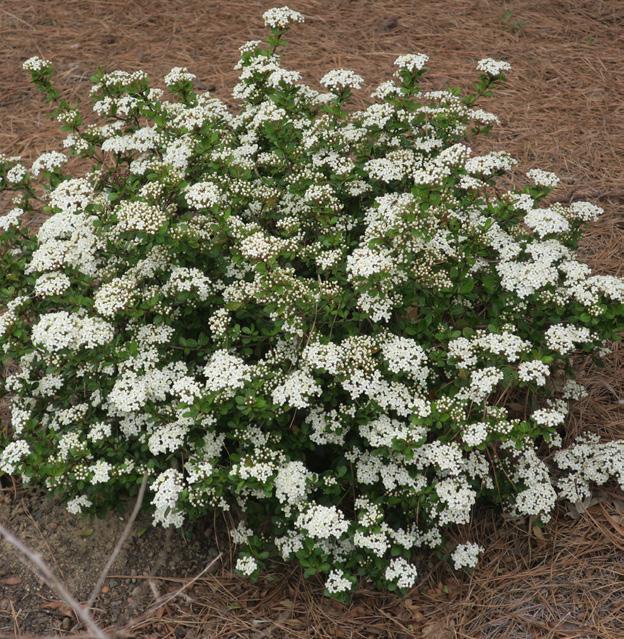
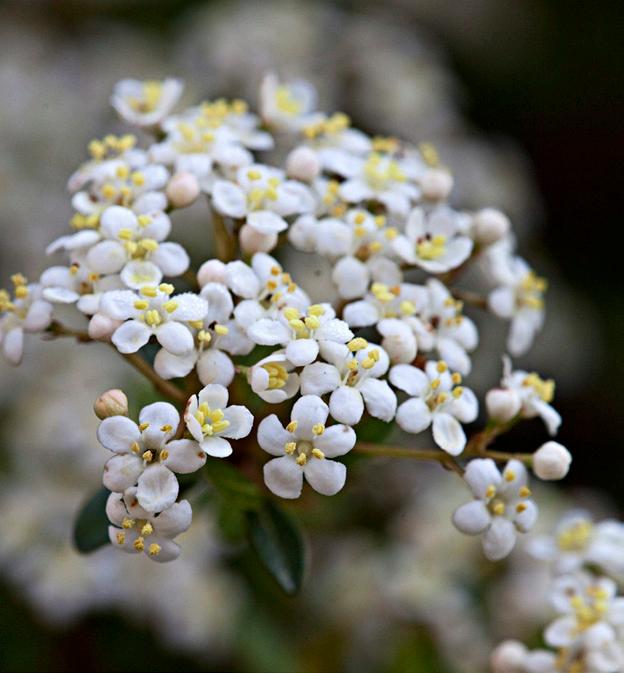
Viburnum obovatum Walter (Walter’s viburnum) is a shrub native to the southeastern United States that is distributed across alluvial forests, calcareous glades and woodlands in eastern South Carolina; south to southern Florida; and west to the Florida panhandle and southeastern Alabama. Featuring small green leaves that develop a red or purple tint in winter, numerous white inflorescences in spring, ornamental fruit production in autumn (red, then black), and an evergreen habit above 15 F, V. obovatum has potential as a hedge or foundation plant for gardens — if selections can be found that improve on the tall and sometimes splaying habit of the wild type. Even the wild type, though, can make a nice garden specimen, reaching 12 feet tall by 12 feet wide in 10 years if pruned or sheared. Eventually, this species can reach more than 20 feet tall and wide. V. obovatum supports birds who consume the fruit and can nest in the dense branches. However, this shrub has the tendency to sucker and will produce a thicket if left unmanaged.
V. obovatum became a plant of interest for the JC Raulston Arboretum (JCRA) during a series of dry summers from 20072009 that included a 100-year drought. While most of the many viburnums in the JCRA collections suffered during the exceptionally dry summers, all forms of Walter’s viburnum in the Arboretum were unfazed, thus catching our attention. At present there are only a few named cultivars of V. obovatum, selected primarily for their dwarf stature and densely branched habit.
In 2014, the cultivar ‘Raulston Hardy’ was selected as superior to other V. obovatum selections (like the better-known ‘Mrs. Schiller’s Delight’) and was introduced by the JCRA for its dwarf habit and cold tolerance, after trial by Johnston County nurserymen in the ground and in production. V. obovatum ‘Raulston Hardy’ can be compared to ‘Mrs. Schiller’s Delight’ but retains its leaves at a lower temperature and has a more rounded shape. It flowers sporadically year-round, with
flowers observed on the plant consecutively every month for two years. Peak bloom is in late March to early April, when plants are completely covered in flowers. Winter color is burgundy, and leaves will drop in severe cold. The retention of leaves in production settings means plants are saleable earlier in the season than other dwarf forms of the species. Native pollinators are attracted to the flowers, and while fruit set has been light on cultivated plants, the fruit is eaten by birds. Like all forms of V. obovatum, ‘Raulston Hardy’ does spread via suckers, which in some locations will need to be pruned and in other locations will prove to be a benefit — especially when used as a mass planting.
V. obovatum ‘Raulston Hardy’ is not patented and is available from the JCRA – Johnston County Nursery Association’s Choice Plants partner nurseries. The Choice Plants marketing program was developed as a method for moving new and underknown superior plants from the JCRA collection to commercial nursery production. Other plants in the program include Buxus microphylla var. japonica ‘Unraveled’ (weeping boxwood), Magnolia ‘Serendipity’ (Serendipity evergreen magnolia), Osmanthus heterophyllus ‘Kaori Hime’ (fragrant princess holly-leaf osmanthus), Callicarpa americana ‘Welch’s Pink’ (pink-fruited American beautyberry), Cercis chinensis ‘Kay’s Early Hope’ (Chinese redbud) and Abelia ×grandiflora ‘Frosty’ (variegated glossy abelia). For more information on this program, go to choiceplants.org.



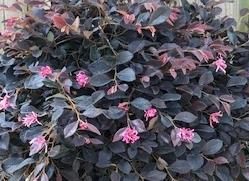


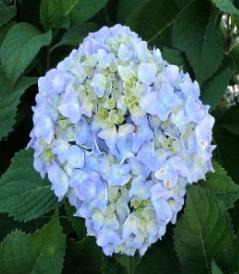
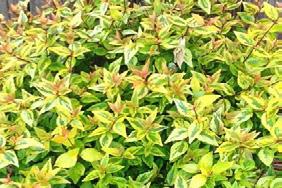

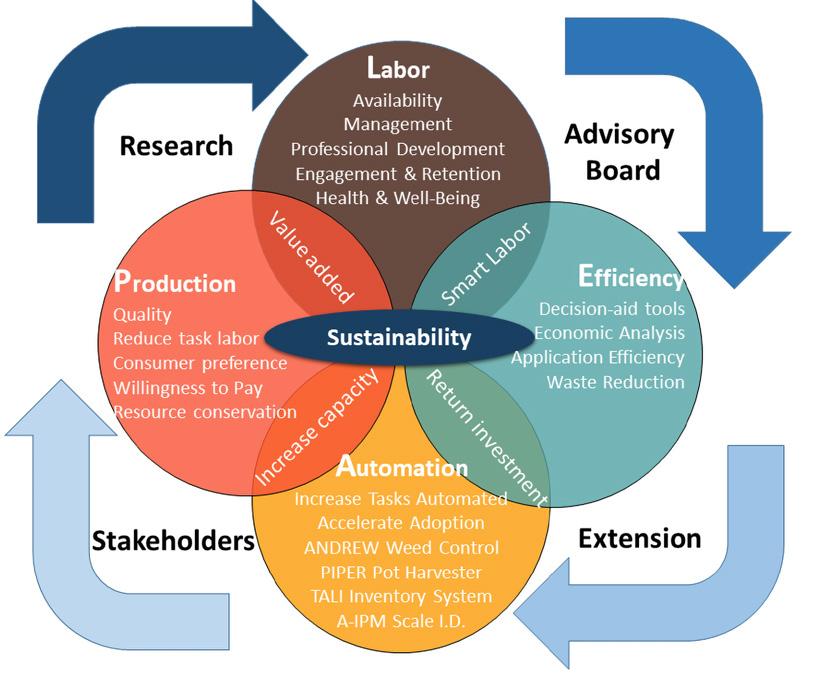
Anthony LeBude, Horticultural Science, NC State University
Laura Warner, Agricultural Education and Communication, University of Florida
Amy Fulcher, Plant Sciences, University of Tennessee
Alicia Rihn, Agricultural Economics, University of Tennessee
Susan Schexnayder, Forestry, Wildlife and Fisheries, University of Tennessee
The Labor, Efficiency, Automation and Production (LEAP) initiative, a collaborative effort among the University of Tennessee Institute of Agriculture, other universities and the U.S. Department of Agriculture, is
working with green industry producers to better understand how automation can help address labor issues and contribute to production capacity and profitability. In 2021, with support from USDA-SCRI Planning Grant
2020-51181-32137, the LEAP team met nationally with stakeholders, producers and its advisory board to conduct six professionally facilitated listening sessions with nursery producers from all U.S. regions. As a result of these
sessions, the team 1) pinpointed inefficient practices and potential automation and technology (ANT) solutions and 2) identified barriers and motivators to ANT adoption experienced by producers.
To validate and further explore stakeholder input, the LEAP team then conducted the LEAP Nursery Labor and Automation Survey, a national needs assessment. Using the survey results, LEAP produced a diverse set of stakeholder-driven outputs, including 24 videos of producer ANT adoption strategies on nurseryleap.com, four refereed manuscripts, six Extension publications and six trade journal articles. We also organized a panel, “The Human Side of AI/Technology Adoption in Tree Crops: Research and Producer Perspectives,” at the 2023 AI in Agriculture Conference and presented several invited lectures nationally.
LEAP and its advisory board has also recruited experts at the federal and state levels in the areas of plant and social sciences, economics, mechanical engineering, robotics, and artificial intelligence to create five powerful, culturally and disciplinarily diverse teams with expertise in production and robotics engineering, socioeconomics, behavioral adoption, consumer preference,
and extension and science communication. These teams will work collaboratively with the advisory board, stakeholders, producers, county and regional Extension staff, and allied industries to accelerate the diffusion and impact of automation adoption through nurseries and their workers to illustrate technology’s inherent effect on output, labor efficiency and productivity, revenue, rural economics, and nursery sustainability.
The LEAP team also found that labor is becoming increasingly scarce, with nurseries having operated in a labor deficit for more than a decade and labor scarcity now reaching a crisis point. In light of these market conditions, interchanging labor for hire with automation is imperative. ANT adoption reduces routine manual tasks, mitigates the effect of labor shortages, uses inputs more efficiently, reduces labor and production costs, and allows for new business opportunities. For employers concerned about the jobs of current employees, several researchers have found that ANT adoption had no overall effect on loss of current employee positions in nurseries (Krahe and Campbell 2016; Posadas 2012). Researchers in other
fields (e.g., car manufacturing) might find different outcomes.
Rogers’ (2003) Diffusion of Innovation (DOI) theory explains the adoption process and elucidates perceived characteristics of innovations, which in turn influence adoption among members of a social system (e.g., the U.S. green industry) over time (see Fig. 1). Generally there are five categories of adopters: innovators (2.5%) are the first to adopt an innovation, followed by early adopters (13.5%), early and late majority (34% each), and late adopters (16%) (Bohlen et al., 1960). As adoption advances within a social system, it eventually reaches a point of critical mass, at which time the diffusion of the innovation will be self-sustaining. Importantly, the same DOI categories may not pertain to every producer for every ANT, given that producer needs, outputs and acumen differ.
Producers progress through five stages in the DOI process. First, they must be aware of an innovation and how it works (knowledge stage). Next, they form opinions about the innovation based on their perceptions of its relative advantage, compatibility, complexity, observability and trialability (persuasion stage).

These perceptions support a producer’s decision to either adopt or reject an innovation (decision stage). After a decision to adopt, they put technology into use (implementation stage) and decide whether or not to continue (confirmation stage).
In a survey of container and field growers, LEAP member Dr. Laura Warner (2022b) found that producers used 25% of 27 ANTs listed, including potting machines, conveyors, trikes (forklifts that transport groups of plants), automated pruners, field transplanting, digging machines, etc. Nursery producers’ perceptions of compatibility, trialability and complexity predicted their current adoption of automation (Fig. 2, left). The negative relationship between perceptions of trialability and adoption suggests that producers had poor trial experiences with these ANTs and did not adopt — or, alternatively, thought of adopting but could not trial them first and so did not adopt. This is particularly poignant for multistep potting machine systems, trikes, and individual plant or whole-row pruners, since trialability is prohibited due to large capital outlay and installation costs. To see these automations in use, producers may visit local innovators who have already adopted them or take a virtual nursery automation tour at nurseryleap.com.
Predicting future likelihood of adopting these innovations depended on compatibility, relative advantage and complexity (Fig. 2, right). Compatibility had the largest effect size in both models. These data indicate that producers are more inclined to adopt ANTs if they integrate well within their current production system — especially if they can be trialed first, are easy to use and have relative advantages compared to current practices. Relative advantage of ANTs can be reflected in increased firm efficiency and reduced labor dependence. The emphasis on compatibility may stem from the lack of automations specifically designed for multiple crops or harsh outdoor nursery environments. To alleviate this lack of automation specific to nursery crops, LEAP engineers are already collaborating with producers to trial ANTs in diverse environments, in order to incorporate producer feedback and explore commercialization pathways to develop nursery-specific ANTs.
Diffusion processes and the factors that influence them differ drastically across sectors and ANTs. When clusters of similar technologies (e.g., irrigation application, plant transport, plant handling, agrochemical application) were evaluated more closely and through a different theoretical lens (Theory of Planned Behavior), LEAP found attitudes to be the most consistent predictor of future adoption of ANTs (Warner et
al., 2022a). Importantly, the power of specific social dynamics varied among ANT clusters. For example, perceived customer approval for ANT adoption related negatively to growers’ future adoption of plant handling and agrochemical application ANTs, while perceptions that peer growers would approve related positively to these ANT clusters. The different dynamics related to each cluster highlight a critical need to understand producers’ adoption processes and customers’ perception of ANTs.
If you’re thinking of adopting a new automation that, for instance, you may have seen at a recent trade show but aren’t sure how it fits into production, consider visiting local or out-of-state nurseries that have adopted ANTs, or watch videos of those technologies in action at nurseryleap.com.
Bohlen, J., C.M. Coughenour, H.F. Lionberger, E.O. Moe, and E.M. Rogers. 1960. Adopters of new farm ideas. Characteristics and communication behavior. Subcommittee for the Study of Diffusion of Farm Practices. North Central Regional Extension Publication No. 13.
Krahe, J. and B. Campbell. 2016. The Impact of Technology on Labor Makeup: A Study of the Green Industry. HortTech 26:351-357.
McClellan, M. (2018). Don’t wait, automate. Nursery Mgt.: GIE Media, Inc. Available online at https://www. nurserymag.com/article/five-tips-automation/. Posadas, B.C. 2018. Socioeconomic determinants of the level of mechanization of nurseries and greenhouses in the southern United States. AIMS Agriculture and Food. 3(3):229-245.
Rogers, E. M. (2003). Diffusion of innovations (3rd ed.). New York: Simon and Schuster.
Warner, L.A.. A.L. Rihn, A. Fulcher, A.V. LeBude, S. Schexnayder, A. Joshi. 2022a. A Theory of Planned Behavior-Informed Evaluation of Growers’ Intent to Use Automated Nursery Technologies. Horticulturae 8:1028. https://doi.org/10.3390/horticulturae8111028.
Warner, L.A., A.L. Rihn, A. Fulcher, S. Schexnayder, and A.V. LeBude. 2022b. The relationship between grower perceptions and adoption of automated nursery technologies. J. Agricult. Ed. 63(2):150-168. https://doi. org/10.5032/jae.2022.02150.


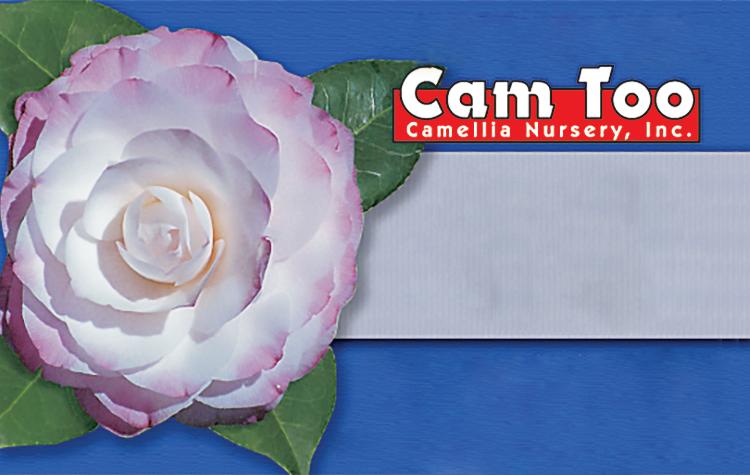
the southeastern U.S.
Dr. Fulya Baysal-Gurel, Tennessee State University
Dr. HT Tseng, NC Department of Agriculture and Consumer Services
Mike Munster, NC State Plant Disease and Insect Clinic
Stacey Jones, NC State Cooperative Extension
The disease known as vascular streak dieback (VSD) was first identified in eastern redbud in Tennessee and red maple in North Carolina just five years ago. Since then, VSD has emerged as a significant issue for nurseries across Tennessee, Virginia and North Carolina. Isolated detections have also occurred in Indiana, Florida and Oklahoma nurseries. VSD has also been found in newly planted landscape redbud and dogwood plants, in a botanic garden and in natural landscapes. Although eastern redbud is the most seriously impacted plant species, VSD has also been identified in more than 25 other woody ornamental plant genera. The disease’s potential impact on just three crops (redbud, red maple and dogwood) is estimated to be more than $175 million. In the face of this rising threat, researchers have taken action to help expand understand ing of VSD and find ways to manage it.
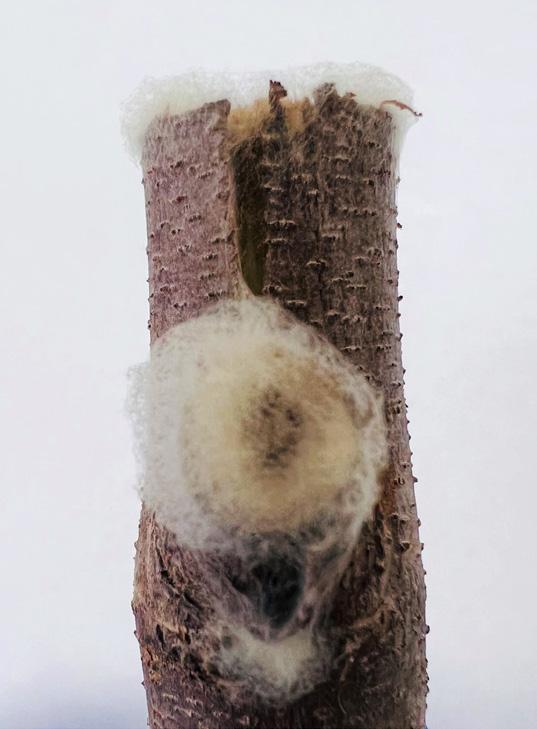
blighted leaves, tip dieback, vascular streaking, small and off-color new leaves, and poor root development. Other conditions that can cause some of these symptoms include Verticillium wilt, bacterial leaf scorch, laurel wilt and even black twig borers. Canker fungi such as Botryosphaeria often co-occur on trees with VSD.

Although symptoms differ from host to host, VSD’s effects include stunted growth, yellowing, epicormic shoots, scorched/
VSD has already caused economic hardship for many in the nursery industry, with plant shipments rejected, orders canceled, crops lost and plants (both symptomatic and asymptomatic) destroyed due to stop-sale orders.
Given the rapid spread of VSD among woody ornamentals, many growers are concerned about the future of their businesses and the industry as a whole. To help identify the extent of economic losses due to VSD, Tennessee State University (TSU) researchers recently initiated a multistate survey funded by the USDA Plant Protection Act Section 7721 (PPA 7721). North Carolina is participating in the survey during summer 2024, with other participating states including Alabama, Kentucky, Maryland, Missouri, Oregon, South Carolina, Tennessee and Virginia). Plant Pest Specialists across North Carolina will survey nurseries, landscapes and natural environments; collect leaf and branch samples; and use molecular techniques to identify plants Ceratobasidium sp. (Csp). Findings will be pivotal in helping to understand the scale of the issue.
Among the many questions surrounding VSD, fundamental is the mystery of just what causes the disease (scientists suspect Csp, which has been consistently associated with
VSD-symptomatic eastern redbuds). To help answer this question, Dr. Baysal-Gurel’s team at TSU has developed a molecular diagnostic tool to accurately detect Csp in potentially infected host plant material. Several other institutions are further testing the tool’s real-time polymerase chain reaction primers. If the technique proves effective, it will represent a big step forward in managing VSD, since faster diagnosis means less crop loss and lower risk of spreading the potential patho gen to new locales.

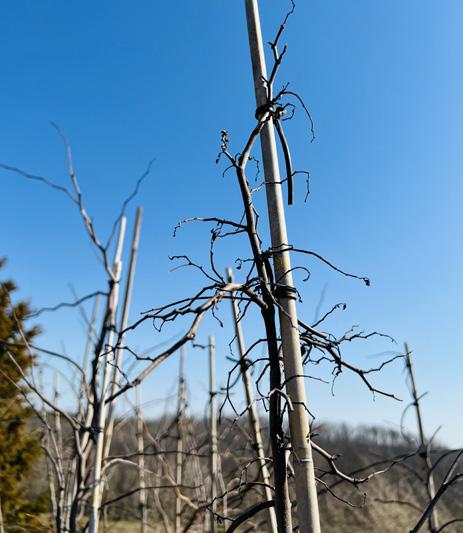
To determine whether Csp is causing the dieback on red bud and other hosts, steps known as Koch’s postulates must be fulfilled, which involves reproducing the characteristic symptoms after inoculating plants with Csp and reisolating the organism. Thus far, efforts to do so have been unsuccessful, mainly because the fungus is hard to isolate, grow and maintain in culture. Future research must ascertain whether VSD is caused by Csp alone or by multiple factors, such as canker-causing pathogens, root rot pathogens or abiotic stresses that might render host plants more susceptible to Csp.
Since a specific cause has yet to be identified, there are currently no “best practice” chemical treatment recommendations for VSD management. However, recognizing the urgent need to help nursery producers, in 2022 the TSU team collaborated with industry partners to conduct fungicide efficacy trials using redbud plants that were naturally exhibiting VSD-related symptoms. The results indicated that foliar applications of Postiva (FRAC 3 + 7) at 20 fluid ounces per 100 gallons and Mural (FRAC 7 + 11) at 7 fluid ounces per 100 gallons at 14-day application intervals were the most effective treatments in reducing leaf scorch associated with VSD on eastern redbud seedlings, on 3-year-old plants, and on several 2-year-old budded cultivars growing in field and container settings. These treatments also reduced the population levels of canker-causing pathogens such as Botryosphaeria and Didymella. However, while some treatments were identified as effective in reducing symptoms, they did not cure already-infected plants. The TSU team is continuing its work to identify more effective chemical treatments.
Another avenue of study involves identifying VSD-tolerant redbud species and cultivars, and toward that end the TSU team is conducting redbud cultivar screening trials based on previous research findings. This information will be crucial for initiating breeding programs to obtain hybrids with promising horticultural characteristics and increased resistance to VSD. According to TSU research findings, redbud cultivars with yellow-colored foliage and papery leaf texture were more susceptible to VSD than other tested cultivars, showing leaf-scorch symptoms starting in late May. By contrast, more resistant cultivars with dark green and purple foliage and thick, leathery leaves exhibited VSD-associated leaf-scorch symptoms in late August. The TSU team and Dr. Hsuan Chen’s team at North Carolina State University are continuing to identify VSD resistance with cultivar screening, including more redbud species, culti-


Although VSD is not specifically regulated in North Carolina, the sale of symptomatic nursery plants testing positive for the fungus would be prohibited. Since VSD causes mortality, the plants would become unsaleable as the fungus progresses. NCDA&CS would refer the nursery to the NC State Extension for treatment or disposal options.
If you encounter plants in nurseries or managed landscapes with VSD symptoms, contact your region’s NC State Cooperative Extension area specialized agent for nursery and greenhouse crops:
• Eastern Region: Danny Lauderdale, dmlauder@ncsu.edu
• Central Region: Stacey Jones, srjones5@ncsu.edu
• Western Region: Sam Marshal, wsmarsh2@ncsu.edu
If your facility is interested in participating in the VSD survey, please contact your regional plant pest specialists or the regulatory plant pathologist, HT Tseng (ht.tseng@ncagr.gov). Information can also be found on the NCDA Plant Industry Division website at ncagr.gov/divisions/plant-industry/ plant-protection/plant-industry-plantprotection-field-services.

